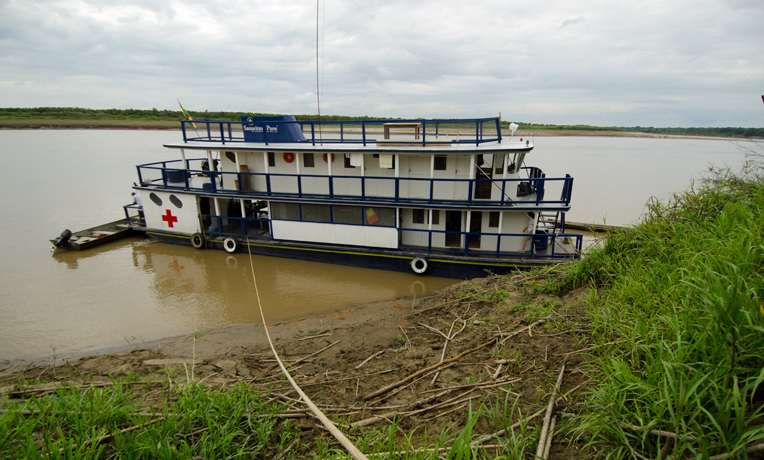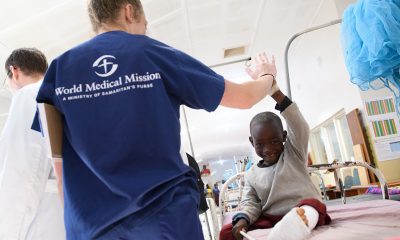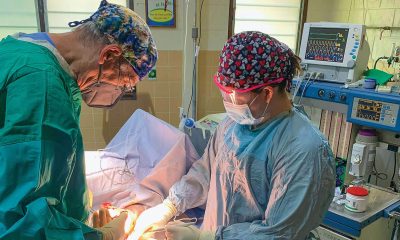When a man came to a doctor on the Ruth Bell Graham River Boat for help with a fungal infection, those watching learned a lesson about humbleness and the love of God.
by Andrew James, teams manager in the Samaritan’s Purse Bolivia office
In August, I had the privilege of serving as a translator for a fantastic group of volunteers from World Medical Mission. We spent two weeks on the Ruth Bell Graham River Boat providing primary medical and dental care to impoverished communities along the Mamoré River in Bolivia.
During this voyage, we had the privilege of hosting Dr. Lance Plyler, Samaritan’s Purse Medical Advisor for Disaster Response. Prior to this trip, I didn’t know him very well, but I had been told by a friend that Dr. Plyler was one of the most humble people he knew. I found this to be true as I got to know him in the following days. Though he was very knowledgeable in medicine, he was extremely personable, obliging, and Godly. I learned a lot from his life.

Without hesitation, Dr. Plyler washed Diego’s feet to help in the healing process.
One day, while we were cleaning up after clinic, a man named Diego walked in and asked if we could still see him. Dr. Plyler asked how we could help and Diego pointed to his feet. He said they were hurting. When Dr. Plyler took a look, he noticed that the man was suffering from a severe fungal infection, primarily caused by poor hygiene. We would have to give him some anti-fungal ointment, but first, his feet needed to be washed. Dr. Plyler asked us to bring him a bucket with warm water, soap, and a wash cloth. We brought it out and he got down on his knees and began washing the man’s feet.
As he did this, I felt like I was gaining a new appreciation for John 13, where Jesus washed the feet of his disciples. I had always visualized the story through my own cultural lens. In my mind, Jesus pulled the disciples’ shoes and socks off and gave their “fairly well-manicured feet” a good washing. I had never imagined that the disciples’ feet might be a lot like Diego’s—full of filth and fungus. And to be honest, it grossed me out. In all sincerity, I didn’t want to touch Diego’s feet. I don’t know much about medicine, but I was afraid I might “catch” whatever he had.
And here was this doctor, one of the world’s elite, on his hands and knees, washing the feet of a “nobody.” There was something in this scene that touched me at the core of my being. Yet, as I began meditating on it, I realized that no matter how much Dr. Plyler had to humble himself to wash the feet of this man, it was nothing in comparison with what Jesus did for us. We’re talking about God—the creator of a universe greater than we could ever comprehend, a God who possesses all glory, and honor, and power—stripping himself of all His privileges to serve, and die, and wash the feet of “nobodies” such as us. If I was impressed by what Dr. Plyler did for Diego, how much more should I marvel at what God Almighty did for me?
When Dr. Plyler finished washing Diego’s feet, he went up to his room, grabbed his hiking boots, and put them on Diego’s feet. For me, this was a picture of how God finishes what he begins. Not only does He give us salvation, but He also blesses us with every spiritual blessing in Christ (Ephesians 1:3).
I’m ashamed of my own reluctance to touch Diego’s feet, but I learned something that day. I won’t be able to serve others the way Dr. Plyler served Diego until I understand the depth of what Christ did for me. That is the point of John 13:15: “For I have given you an example, that you also should do just as I have done to you” (John 13:15, ESV).





